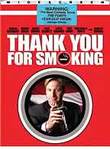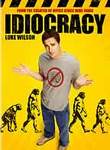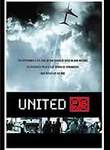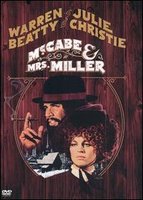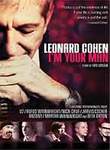
Leonard Cohen - I'm Your Man (Lian Lunson, 2006) [7]
The concert film/music documentary has become so watered down and so often used as a way to make a quick buck that it truly is refreshing to see one that has some thought and craft put into it. The basis for this film was a concert given in Australia that celebrated the songs of Leonard Cohen by artists such as Rufus and Martha Wainwright, Nick Cave, Antony, Jarvis Cocker, and Bono and Edge of U2 at a separate time. While none of the names on the concert bill may leap out at someone who's idea of good music is American Idol, it seems fitting because Cohen himself was never the type of success and had the tremendous influence as someone like Bob Dylan. Personally speaking, even though I love Dylan, I find Leonard Cohen the most impressive lyricist I've ever come into contact with. The way he mixes the sacred and the profane, the serious with a touch of humor, and how he grounds it in an all too fragile reality resonate with me more than any other artist.
Outside of my appreciation for Leonard Cohen, the film is well-done for the majority of it. The concert section is restrained and well filmed. Lunson doesn't let himself over-edit with one exception, letting the performances and Cohen's words linger in the viewer. All of the performances are solid, but I think that Antony's performance of "If It Be Your Will" is exceptional, showing the soulful, sacred nature of Cohen's songs. Lunson's interviews with Cohen are also refreshing. Cohen doesn't try to make himself out to be a great artist; most of the time, he discusses where he feels he has shortcomings in his music. They are truly interesting conversations and my only wish is that there were a little bit more of them. But it's still nice to see a film that while being referential towards its subject, doesn't fawn over it making it trivial.
